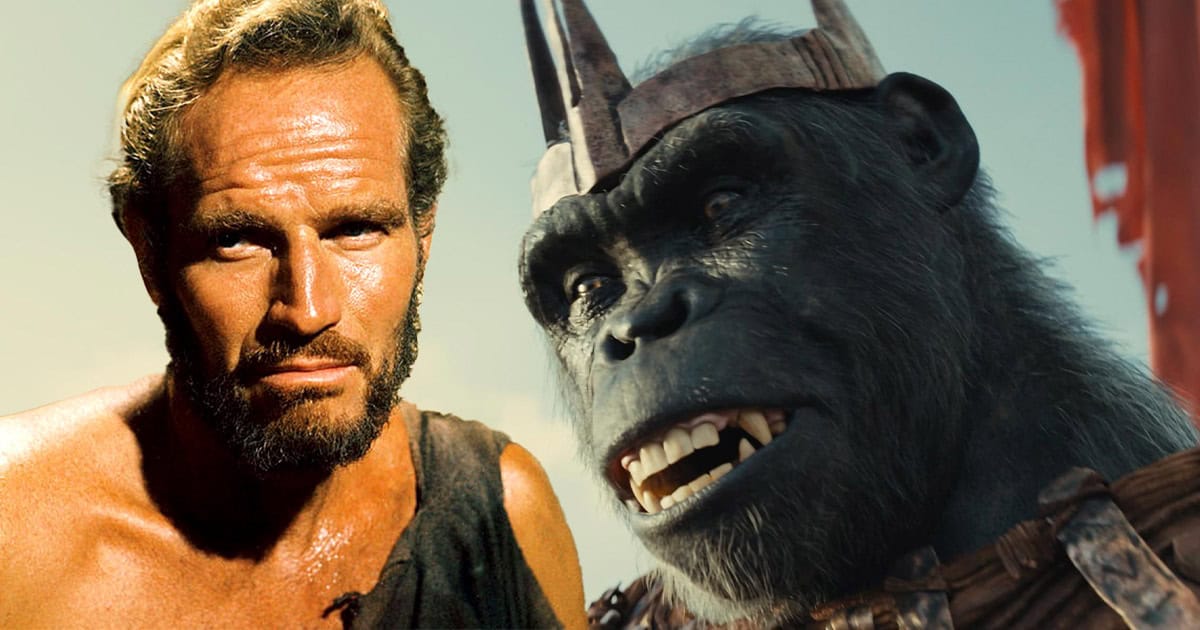We rank all of the Planet of the Apes movies, from worst to best, including the 2001 remake, Kingdom, and more!
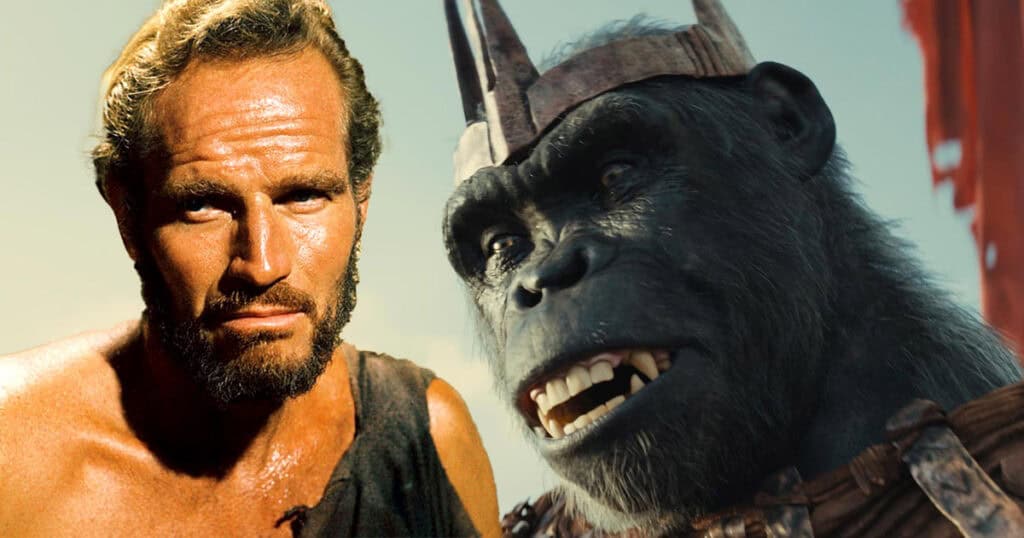
I love me some damn dirty apes, and I’m not alone. Ever since the first Planet of the Apes movie in 1968, it’s been one of Hollywood’s most consistent (on a quality level) franchises. Think about it. Has there ever really been a lousy Planet of the Apes movie? Not really. Yet, it’s often unheralded when we talk about the great franchises. So, let’s look at the series as a whole, with this Planet of the Apes movies ranked list (from worst to best). And don’t worry – you’ll get to have your say tomorrow with a poll I’ll be publishing, so check back for that.
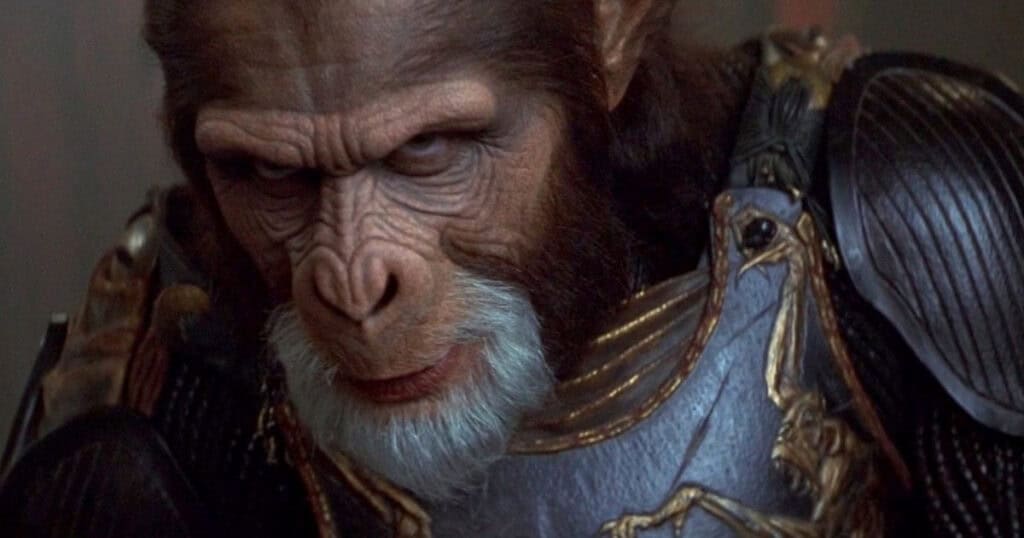
Planet of the Apes (2001)
Tim Burton’s remake of the original 1968 classic is a mixed bag. Mark Wahlberg was a little too green at this point in his career to make a captivating action hero, with him paling compared to Charlton Heston’s powerhouse performance in the original. The film itself is more than a little inconsistent, and I can see why it couldn’t launch a big new franchise for the studio, even if it did pretty well financially ($362 million worldwide). However, the makeup from Rick Baker is incredible, and the fact that it’s the last Apes movie to use the old, practical makeup FX instead of CGI makes it a must-see. Also, it’s one of Paul Giamatti’s favourite roles ever.
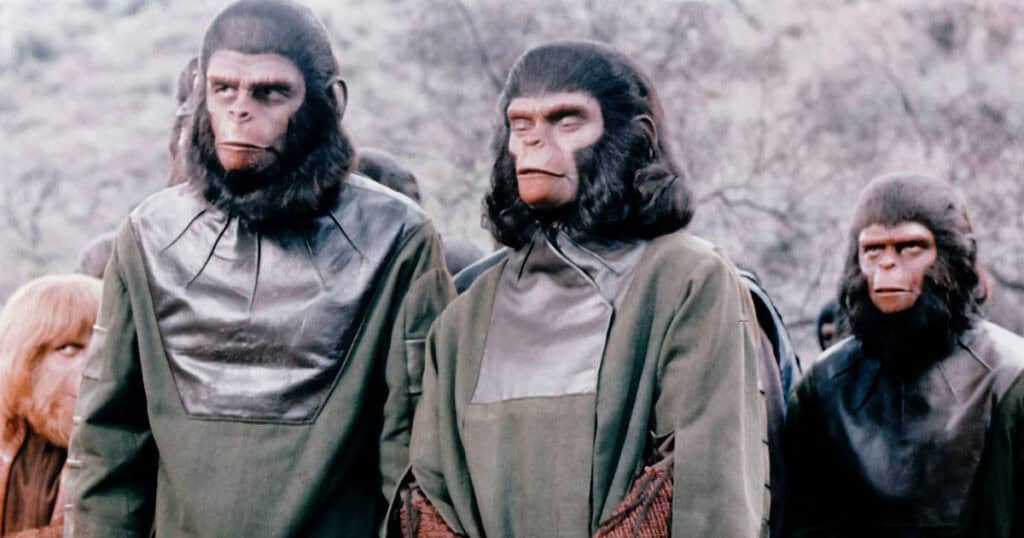
Battle for the Planet of the Apes (1972)
In the sixties and seventies, sequels were made differently. The general consensus was always that a sequel would make less money than its predecessor, so the budgets were lower. As the Planet of the Apes series went on at 20th Century Fox, the studio started pumping less and less money into them, and Battle for the Planet of the Apes had a minuscule budget, resulting in the cheapest-looking Apes film of all time. However, it still has Roddy McDowell acting his ass off in the culmination of the original Caesar trilogy. It also has a very eccentric supporting cast, with director John Huston and singer Paul Williams (The Phantom of the Paradise) turning up as Apes. Williams loved playing the part so much that he was known to turn up on talk shows wearing John Chambers’ makeup. Like all the other Apes movies, it made money for Fox, but rather than make an even cheaper sequel, they opted to spin the series off into a short-lived TV series they managed to get McDowell to return for.
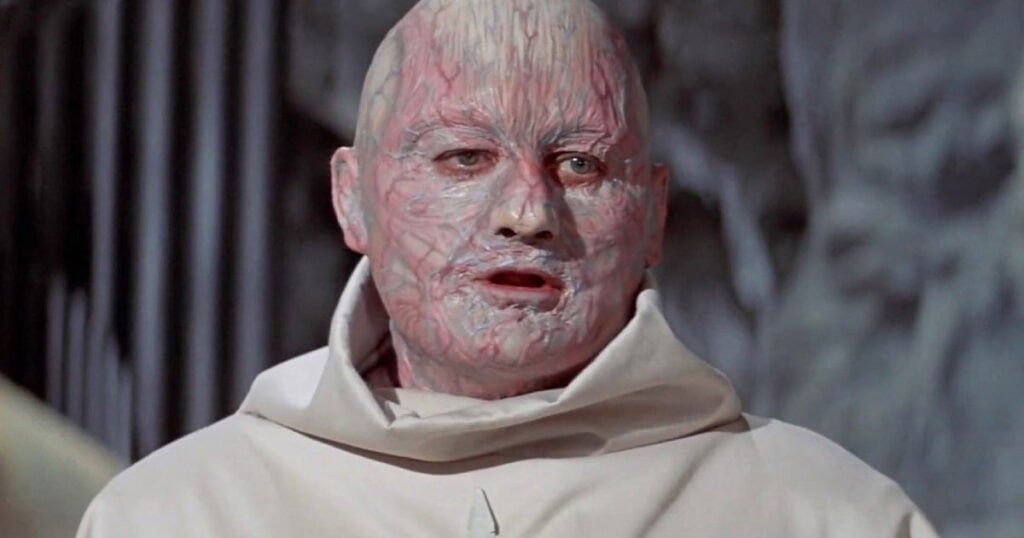
Beneath the Planet of the Apes (1970)
When Planet of the Apes was a smash hit, 20th Century Fox immediately committed to a sequel. But, as was the general thinking about sequels those days, it was not designed as an “A-feature” in the vein of the first film. That movie’s director, Franklin J. Schaffner, never considered returning, with him making the Oscar-winning Patton for the same studio instead. The budget was only a fraction of the first film’s, partly because the studio had suffered a series of costly flops. The result is a reasonably cheap-looking film, with TV actor James Franciscus taking over for Charlton Heston in the lead. However, they did manage to entice Heston back for an extended cameo, which allows the film to end on a provocatively gloomy note, making the movie worth watching. This is the only classic Apes movie that didn’t have Roddy McDowell in it, with him shooting another film while doing this – and his absence is sorely felt.
Kingdom of the Planet of the Apes (2024)
Wes Ball’s new entry into the Apes saga is half a great movie. It’s terrific when it focuses on Ape culture and the new characters, such as Owen Teague’s Noa. But, when it starts to emphasize the humans and tee up yet another interspecies war, it becomes more of a mixed bag. We already have a pretty good trilogy on that very topic, so it would be nice to see this potential new series heading in another direction.
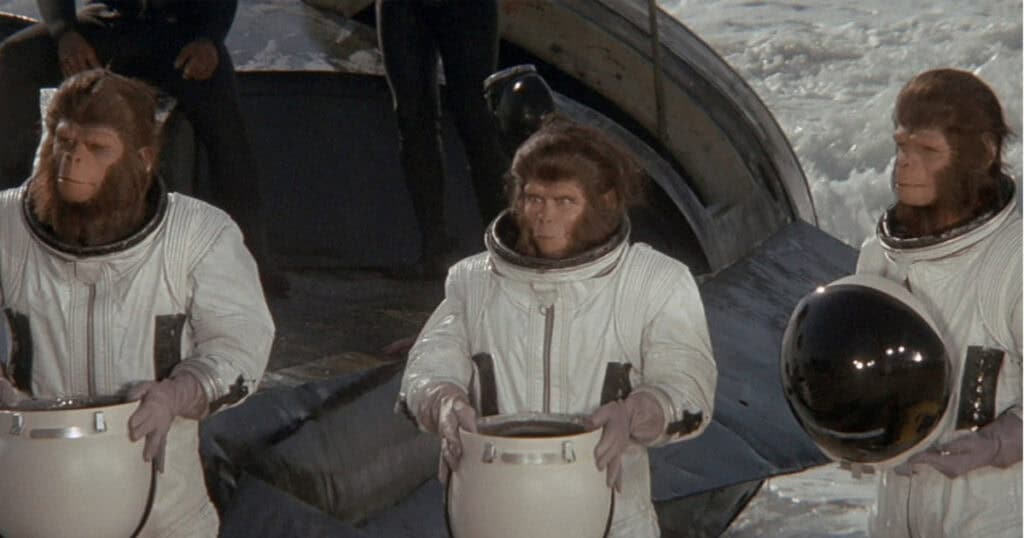
Escape From the Planet of the Apes (1971)
This one starts on a deceptively light note, with us seeing that Apes Zira (Kim Hunter) and Cornelius (Roddy McDowell) escaped the destruction of the planet of the apes (a future version of Earth) and have gone through a time warp that sends them back in time to 1973. Initially, they become celebrities, with the movie adopting a silly, sitcom-style tone, only to take a HARD left turn towards the finale, when it becomes a tragedy that expertly sets the stage for all the movies to come.
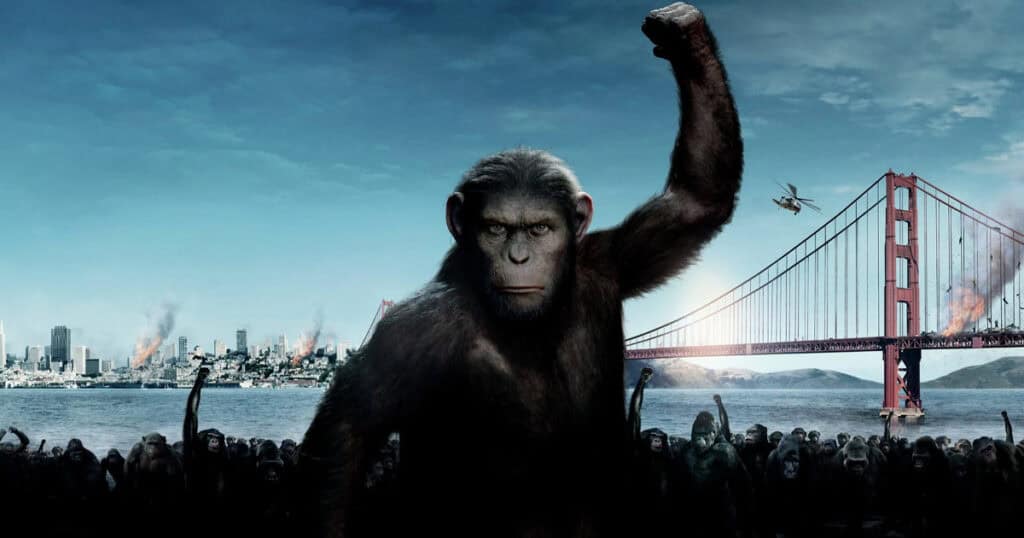
Rise of the Planet of the Apes (2011)
In my review of Kingdom, I mentioned this movie being a mixed bag, and I was surprised at how upset some folks got with me in the comments, as this is almost universally beloved among fans of the series. I remember it getting more of a mixed reaction when it originally came out, and I stand by the idea that it’s a GOOD film, but the sequels are better. James Franco phones in his performance, but it doesn’t matter in the end because the movie wisely focuses on Andy Serkis as our new ape hero, Caesar. John Lithgow is excellent in this as Franco’s dementia-affected father, who becomes a surrogate parent to Caesar, leading to a heartbreaking conclusion.
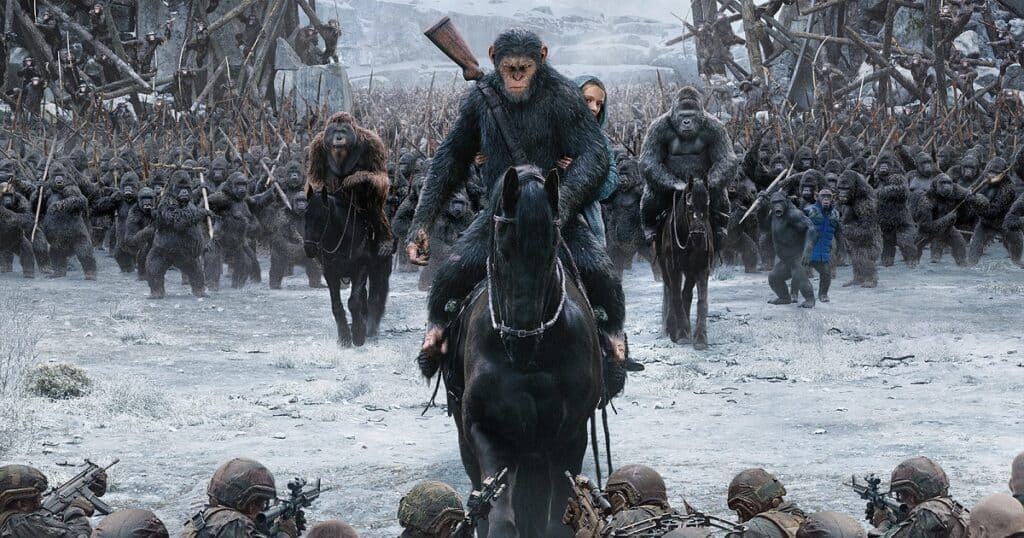
War for the Planet of the Apes (2017)
The reboot trilogy ended with this all-out war film depicting how humans lost control of the planet due to their desire to re-establish dominance over the Apes. Some found the film overly self-serious and dark, but it brought the reboot trilogy to an operatic end and gave Serkis a platform to deliver (perhaps) his best mo-cap performance to date. Woody Harrelson also makes one of the most despicable human villains in the series (to date).
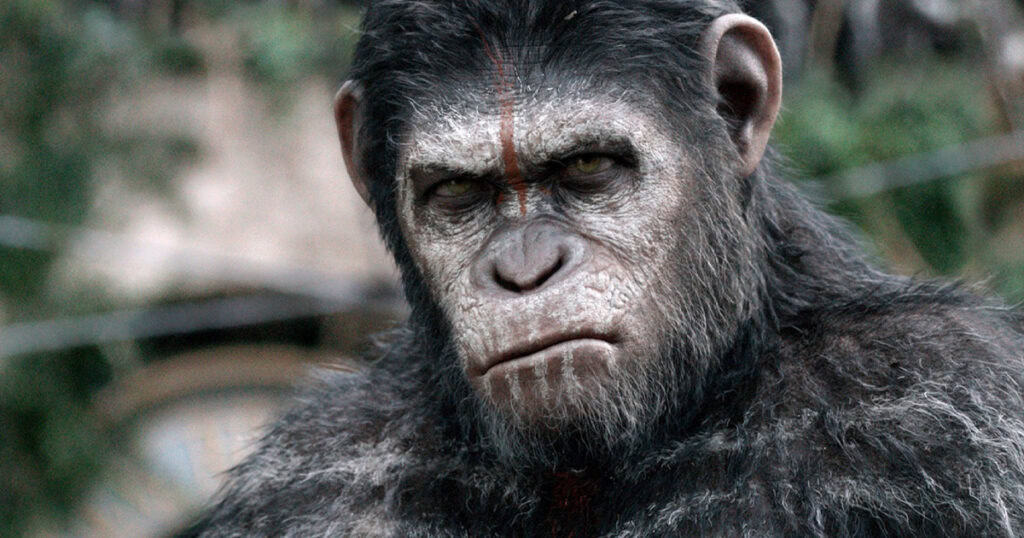
Dawn of the Planet of the Apes (2014)
For me, this stands as the best entry in the reboot trilogy. It was Matt Reeves’ first time making a super large-scale blockbuster, and he does a better job than most other films in the series of juggling the screen time between humans and aes, with Gary Oldman playing the most sympathetic antagonist the series ever had.
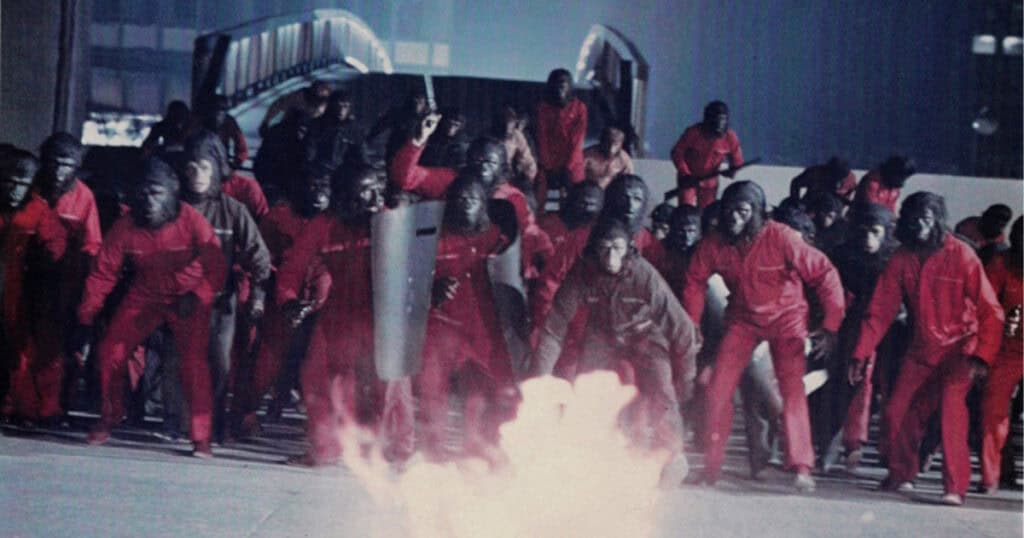
Conquest of the Planet of the Apes (1972)
While Beneath and Escape the Planet of the Apes were hits, Fox continued slashing every subsequent instalment’s budget. Yet, the silver lining was that the movies were able to tackle riskier material, with director J. Lee Thompson and his writer Paul Dehn making the film a metaphor for fraught race relations in the U.S, with this very much informed by the battle for Civil Rights, the rise of the Black Panthers, and more. The film’s theatrical cut was toned down a bit by Fox, but if you watch it on Blu-ray, you’ll see the legit, uncompromised cut, with it standing as one of the more radical sci-fi films of the era.
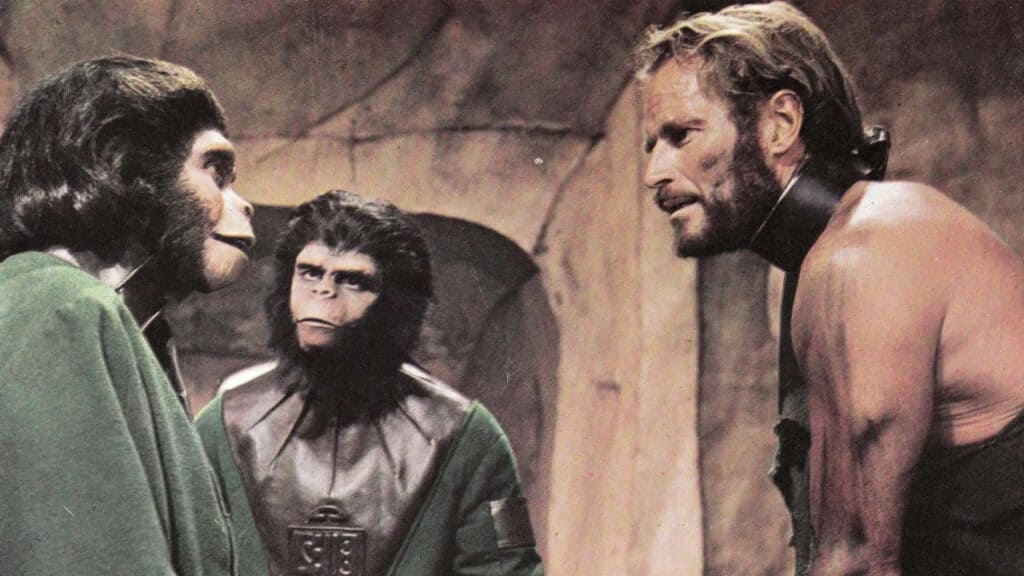
Planet of the Apes (1968)
Of course, no movie in the series can match Franklin J. Schaffer’s original entry, one of the best science fiction movies ever made. It’s a very influential film, with stunning makeup effects courtesy of John Chambers, a superb musical score by Jerry Goldsmith, and an iconic performance by the great Charlton Heston in the lead. It also has one of the most unhinged, disturbing endings of all time. As good as every other movie in the franchise is, this one is arguably the only true masterpiece of the series. That said, in my opinion, again, there’s never actually been a bad Planet of the Apes movie.

